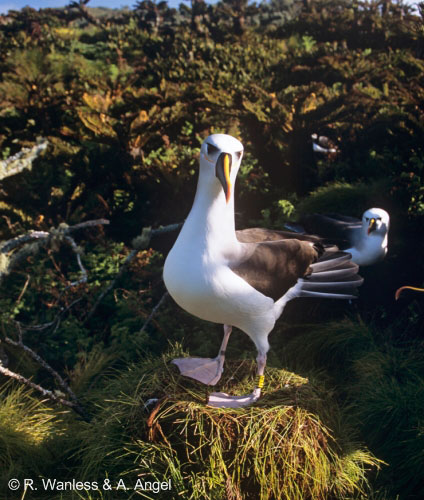An appeal goes out for contributions to a theme section:
"Dear colleagues,
We are planning a theme section in the journal Marine Ecology Progress Series on the topic of "Mechanisms of Physical-Biological Coupling Forcing Biological Hotspots".
We intend the theme section will examine variability in physical processes that result in marine hotspots and also examine issues of spatial and temporal scale in the formation and persistence of biological hotspots. We recognize the term hotspot can be defined in multiple ways and feel this theme section can help narrow down the concept of a marine hotspot.
Manuscripts that pass peer review will be accepted for publication in regardless of whether we have sufficient manuscripts for a theme section or not.
Please contact Elliott Hazen (
Thank you. Sincerely, Elliott Hazen, Rob Suryan and Yutaka Watanuki."
Click here for more details.

Atlantic Yellow-nosed Albatrosses breeding on Gough Island in a long-term study colony
John Cooper, ACAP Information Officer, 1 May 2012

 Français
Français  English
English  Español
Español